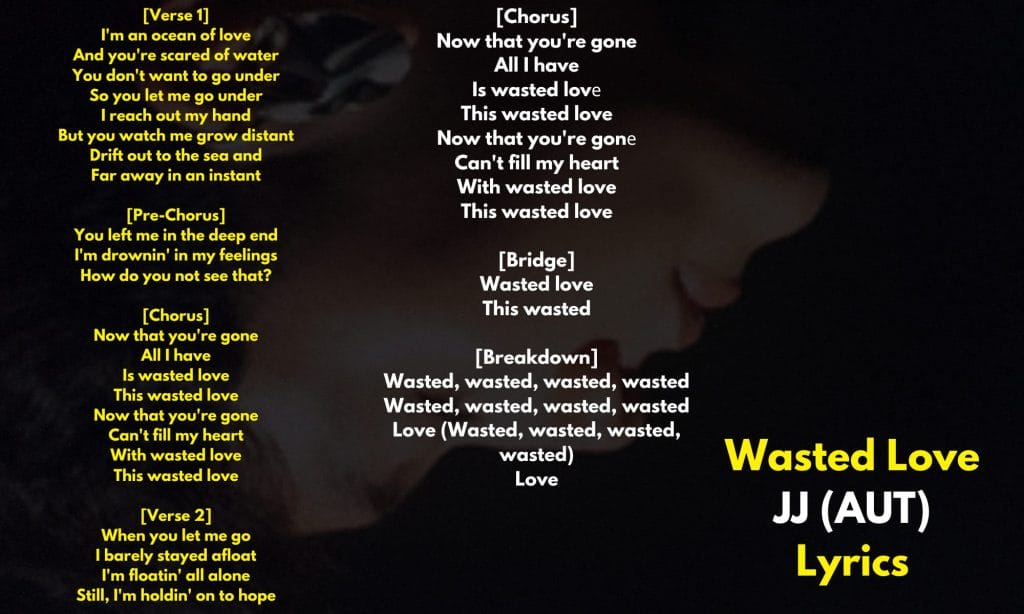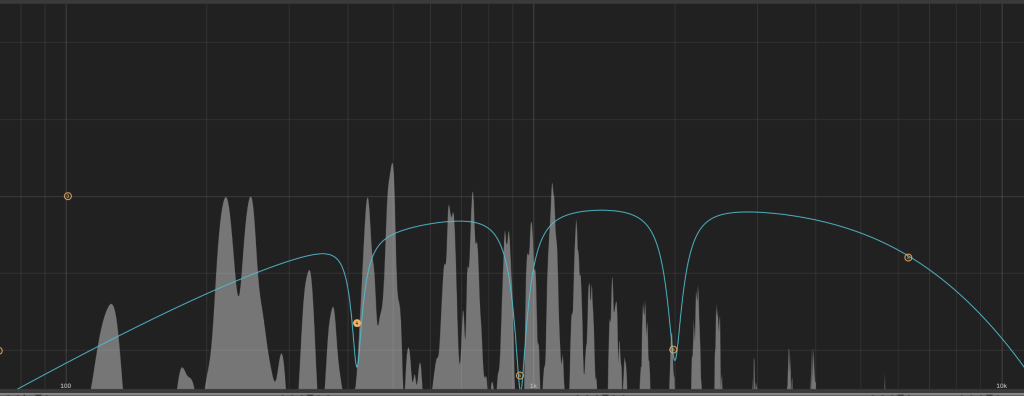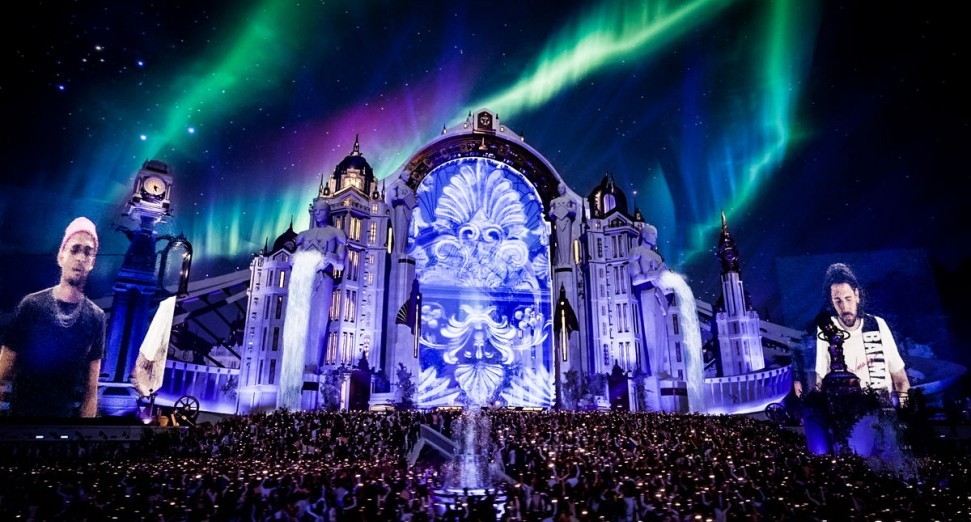
Wasted Love JJ (AUT) Lyrics And Meaning: Holding on to Hope Even When It Hurts
Table of Contents
Image C/O Manifester Music And WMG. For educational only.
Let’s talk about “Wasted Love” for a hot second. Not just the big Eurovision moment, not just the key change and dramatic club drop, but the lyrics and words themselves — the actual words JJ is singing through all that operatic power. This is a song that caught fire across Europe and ended up winning the whole thing at Eurovision 2025, bringing Austria its first win in over a decade.
And I get why.
On the surface, you’ve got this gorgeous fusion of opera, synth, and emotional build — a countertenor ballad that flips into a techno anthem in the last third. But underneath all that, the song is really about something small and familiar: loving someone who won’t love you back, and trying to make peace with what’s left behind.
JJ, who’s only 24 and comes from Vienna, has said this track is meant to show what’s going on in his heart — that deep, painful side of love that isn’t tidy or fair. He’s got this classical music training, and you can hear that all over the vocal phrasing. But more than anything, “Wasted Love” feels like a raw breakup journal. And I say that with respect — it’s direct, it’s unfiltered, and it’s emotionally honest in a way that reminds me of how writers have tried to describe heartbreak for centuries. That’s where I come in. I often write about English literature and poetry, so naturally, I can’t help but hear echoes of older texts behind these lines.
This analysis isn’t me trying to find the “right” interpretation. These are just my own takeaways — my attempt to slow the song down and listen a little closer to the language. And since we’re here, why not bring in some classic literature to help us sharpen the picture? Songs like this make great excuses to stretch the comparisons and ask what literary history — and yeah, even a little fantasy and fiction — might have to say about modern heartbreak.
Wasted Love (JJ) — At a Glance
- This is a breakup song disguised as an opera-club anthem. It sounds massive onstage, but the lyrics are close, quiet, and personal when you sit with them.
- The speaker’s stuck loving someone who left — and not just physically, but emotionally. The big word here is “wasted.” Not just about time, but about love that had nowhere to go.
- Underneath the synths and soprano, it’s all about emotional distance. It’s someone reaching out, getting nothing back, and trying to survive the silence that follows.
Wasted LoveJJ (AUT) Lyrics
Meaning
“I’m an ocean of love / And you’re scared of water”
These opening lines tell us everything we need to know about the relationship. The speaker is saying: I loved you deeply. I had a lot to give. But the other person didn’t want to feel anything that deep. They were afraid of how strong that love was. Instead of jumping in with the speaker, they backed away.
The line “And you’re scared of water” makes that fear clear. The other person doesn’t want to go beneath the surface. They’re not ready to deal with real feelings. So instead of trying, they walk away — and the speaker is left drowning. That next line, “So you let me go under,” is really painful. It’s not just that the relationship didn’t work — it’s that the other person let it fail on purpose.
This reminds me of Charlotte Mew’s poem “On the Asylum Road.” In that poem, Mew talks about people who are broken inside but ignored by everyone around them. One line that really fits here is:
“with faces like the faces of those who tread the sea-floor.”
That’s the same image we see in this verse — someone sinking, feeling everything, while the other person just stands by, untouched.
“I reach out my hand / But you watch me grow distant”
This is where the speaker tries to save the relationship. They’re reaching out, trying to hold on. But the other person doesn’t help. They just watch as the speaker drifts away. The word “distant” shows how far apart they’ve grown — not just in space, but emotionally.
The image of drifting out to sea makes the speaker feel small, like they’re being pulled away by something they can’t stop. The line “Far away in an instant” shows how fast the break happened. One minute they were close, the next minute they were alone. That kind of sudden distance can be shocking and hurtful, and I think this lyric captures that really clearly.
Again, Charlotte Mew’s work helps explain why this moment feels so heavy. Her writing often shows people who are suffering silently while others do nothing. The speaker in the song feels the same — they’re trying, they’re hurting, but the person they loved just lets them go.
“You left me in the deep end / I’m drownin’ in my feelings”
Here the speaker says what we already guessed — they feel abandoned. The “deep end” is a place where you can’t touch the bottom. That’s what makes this line work so well. They’re saying: You didn’t just leave me — you left me where I couldn’t handle it alone.
The next line makes it even clearer: “I’m drownin’ in my feelings.” That’s not just sadness. That’s being overwhelmed. The speaker feels like there’s too much to hold. Too many feelings, and no one to share them with. This is what emotional pain looks like when it’s too big to carry.
In Trumbull Stickney’s poem “Mnemosyne,” he says,
“These things are in my heart.”
That’s what I hear in this pre-chorus. Feelings don’t just go away. They stay in your chest. They stay with you even when the person is gone. The speaker in the song is stuck in that place — full of emotion, with no one listening.
“Now that you’re gone / All I have / Is wasted love”
This is the heart of the song. These lines come back again and again for a reason. The speaker says: You’re gone, and all that love I gave you? It didn’t go anywhere. It didn’t matter. It’s wasted now. That word — wasted — is simple, but strong. It means that all their effort, all their feelings, didn’t lead to anything.
This isn’t just a sad feeling. It’s also about realizing the truth. The speaker sees that they were giving everything while the other person gave nothing. That hurts, but it also shows how clear things have become. Sometimes it takes losing someone to understand how one-sided the relationship really was.
James Wright’s poem “Lying in a Hammock at William Duffy’s Farm” ends with the line:
“I have wasted my life.”
It’s a quiet, powerful moment of realization. That line isn’t about drama — it’s about deep, quiet disappointment. The same feeling shows up in this chorus. The speaker isn’t yelling. They’re not angry. They’re just tired, and they feel like all their love didn’t matter in the end.
“When you let me go / I barely stayed afloat”
This verse shows what happened after the breakup. The speaker says they “barely stayed afloat.” That means it almost broke them. They felt like they were about to sink — emotionally, mentally, maybe even physically. That’s how strong the pain was.
The line “I’m floatin’ all alone” keeps that water image going. They’re not drowning this time, but they’re still out there by themselves. Still lost. Still not back to normal. Even now, they’re “holdin’ on to hope.” That shows they haven’t given up. There’s still a part of them that believes things might change or get better.
In “Mnemosyne,” Trumbull Stickney writes about people who pass each other “nor take regret.” That means people move on too easily. But the speaker in this song doesn’t move on. They hold onto the love. They remember everything. They still care — even when they shouldn’t.
“Wasted, wasted, wasted, wasted / Love”
At the end of the song, everything falls apart into one word: “wasted.” It’s said again and again. That’s what makes this part feel so emotional. There are no full sentences now. Just the same word repeated over and over.
That tells me the speaker is stuck. They can’t say anything else. The only word that feels right is “wasted.” It covers everything: their time, their feelings, their effort. It all went into something that didn’t last.
James Wright’s final line — “I have wasted my life” — shows the same kind of emotional burnout. Not yelling. Not crying. Just that quiet, heavy truth. The speaker in the song isn’t asking for anything anymore. They’re just naming what’s left.
Connecting All The Lyrical Dots
So here’s the thing about “Wasted Love” — yes, it won Eurovision, and yes, JJ absolutely crushed it live.
But if you pull back the curtain on all the production, what’s underneath is actually something way quieter: a breakup song that’s not angry, not dramatic — just tired. It’s someone looking back at a relationship that clearly wasn’t equal, realizing how much they gave, and sitting with the feeling that none of it landed. That’s where the word “wasted” really lives in this song — not in some explosive, scorched-earth way, but in that heavy, slow kind of grief that shows up when someone pulls away and doesn’t even try to explain why.
You see it right away in the first verse: “I reach out my hand / But you watch me grow distant.” No fight. No closure. Just one person emotionally showing up, and the other not meeting them there.
It’s a kind of emotional distance that reminds me a lot of Charlotte Mew’s “On the Asylum Road.” In that poem, people are literally walking alongside others who are mentally unwell, but their faces are blank — like they’re underwater, too deep to reach. Mew writes about the silence between people who should be connected, and that’s exactly what’s going on here. JJ’s speaker is reaching out, hoping, waiting, and eventually just floating alone. And what makes this hit even harder is knowing JJ performed this whole thing — opera vocals, club beat, all of it — in front of 160 million people.
And it still somehow felt personal. That’s rare. I think it worked because the emotional message didn’t get lost in the spectacle. It’s simple, but sharp: I gave you everything, and now I’m the only one left holding it.
That idea really locks in with the final lines — “Now that you’re gone / All I have is wasted love.” That line doesn’t ask for anything. It just says what’s true for the speaker. It’s not that the love didn’t exist — it did. But it didn’t go anywhere. That’s where James Wright comes in.
The way his poem ends — “I have wasted my life” — hits in the same place. He doesn’t explain it. He just lets the weight of that one line do the work. Same thing here. And if you want to push it further, look at Trumbull Stickney. In “Mnemosyne,” he writes, “These things are in my heart.” And that’s the speaker in this song too. Still carrying everything. Still stuck in the middle of it.
That’s what makes “Wasted Love” work. It’s not trying to tidy up the ending. It just lets the ache stay where it is.



